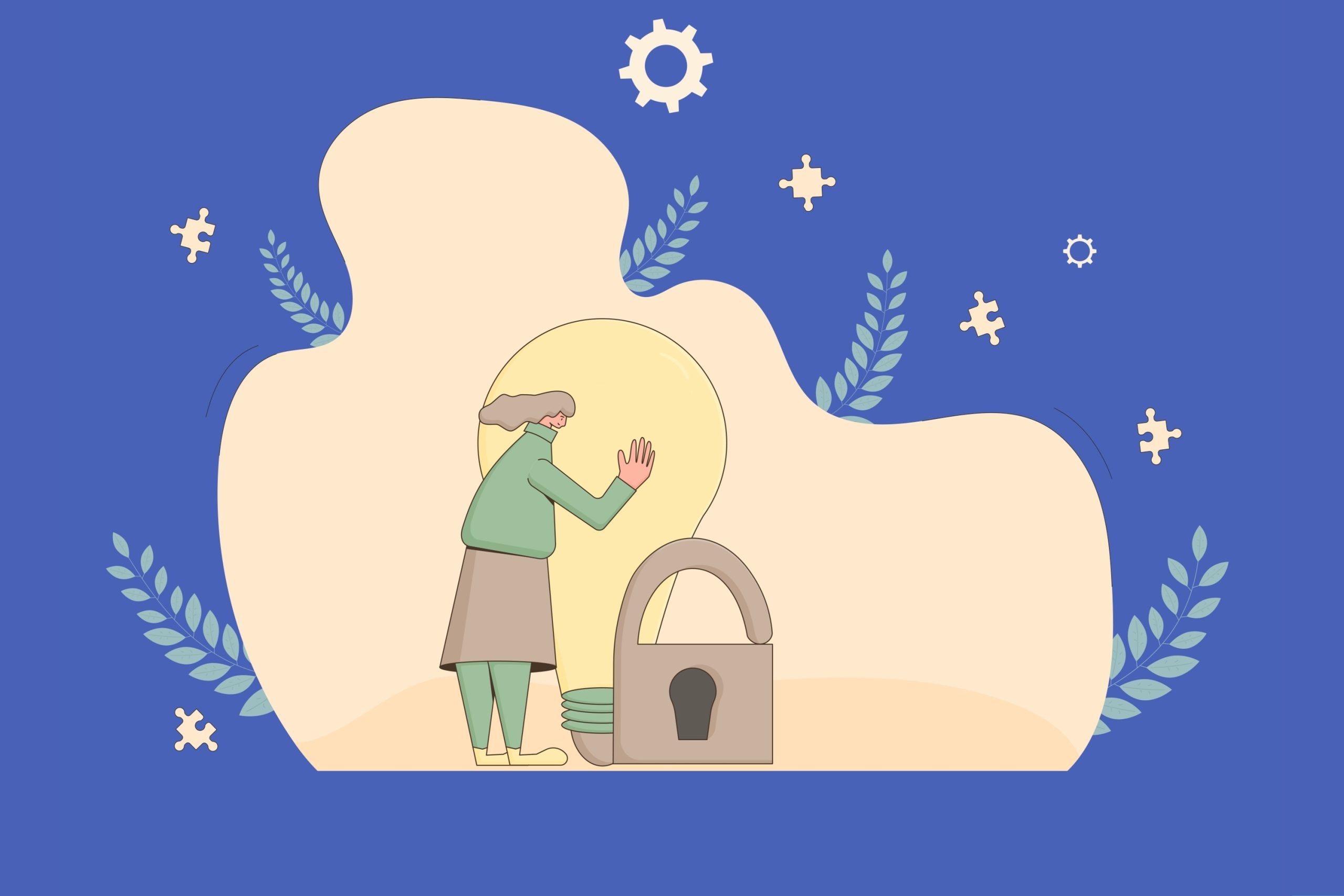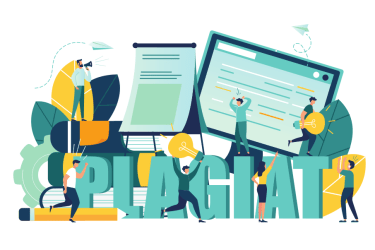The Ethics of Using Plagiarism Checkers in Education: Balancing Privacy and Academic Integrity
While plagiarism checkers are undeniably helpful in maintaining academic integrity, their use raises ethical considerations. In this article, we examine the ethics of using plagiarism checkers in education and explore how to balance the need for privacy with the need for academic honesty.
Examining the Ethics of Plagiarism Checkers
Plagiarism is undoubtedly one of the biggest problems of modern education, and not only because it is a serious offense of academic integrity. In today’s digital age, the temptation of students to plagiarize is at an all-time high. Plagiarising is easier than ever: in two clicks, you can access thousands of scientific publications, digitized books, AI tools or even ghost-writers who will craft the text for you. Academic honesty of students is valued and appreciated, but, unfortunately, we cannot rely on it alone.
On the other hand, in the modern era, potential plagiarism is just as easy to spot. Educational institutions and organizations have implemented anti-plagiarism software that identifies similarities and analyzes authorship of any text. But no matter how great these tools’ algorithms are, their verdicts are not always immaculate and must be interpreted correctly by the teachers.
Students may both deliberately cheat or unintentionally plagiarize. Moreover, there is a possibility of false positive results during plagiarism checks. Questioning the originality of the paper can also affect the relationship between teacher and student. And finally, let’s not forget about the issue of privacy: students’ personal data also gets into plagiarism check systems, so it must be seriously protected.
Plagiarism detection ethics and correctness play an extremely high role in the entire educational system. Are students’ honor, dignity and privacy the highest values while plagiarism verification? Does the struggle for academic integrity allow them to be pushed aside? What does plagiarism checker ethics mean in the end?

The Impact of Plagiarism Checkers on Privacy and Confidentiality
One of the primary concerns related to plagiarism checkers is students’ privacy. Students have a right for privacy, and schools and universities have a responsibility to protect their personal information. Plagiarism detection policies must take into account these privacy concerns to ensure that student data is protected.
Students may feel that their privacy is being violated when their work is scanned by the detection software. In addition to the author’s texts, they are often required to provide personal information such as their name, student ID, and email address. This information is then stored in the software’s database, raising concerns about how it will be used and who will have access to it. Additionally, some plagiarism checkers store students’ works in a database, which can be accessed by other students or faculty members.
How must institutions ensure that confidentiality is protected?
It is extremely important to choose a reliable partner for implementing plagiarism checking software.
Also, educational institutions have to introduce clear policies to protect students’ privacy and ensure that the data collected by plagiarism checkers is protected and used only for its intended purpose: detecting plagiarism. Additionally, students should be informed about the data collection practices of the plagiarism checker and given the option to opt-out if they have concerns.
How can Educators avoid negative plagiarism detection impact and privacy concerns?
Institutions need to maintain plagiarism detection policies and academic integrity policies. It is extremely important to inform students about them.
Institutions can improve their ranking by ensuring the highest level of privacy, confidentiality and verification accuracy with proven tools like PlagiarismCheck.org.
Reassuring students that their private data will be respected will ensure high trust and eliminate anxiety. In addition, the effectiveness of the educational process will be facilitated by an official declaration of support for original texts, education on academic honesty and an early warning about the consequences of fraud and conditions for consideration of appeals.
Balancing the Need for Academic Integrity and Student Privacy
Academic Integrity vs Privacy:
Most leading schools and universities develop policies that strike a balance that upholds academic honesty policies without sacrificing students’ right to privacy. One way to achieve this is to provide clear guidelines on how students’ data is collected, used, and protected.
Student Data Protection:
Institutions should ensure that their plagiarism detection policies comply with applicable data protection regulations. This may involve anonymizing student data, providing transparency regarding the data usage, or obtaining explicit consent from the students.
Plagiarism Detection Policies:
Institutions must have clear policies for the use of plagiarism detection software. These policies should outline the scope and limitations of the software, the steps taken to protect student data, etc. For example, some institutions choose to use plagiarism checkers only for certain assignments or courses. Regular training for faculty and staff on these policies can also help ensure ethical use.
Academic Honesty Policies:
Institutions must also have clear academic honesty policies that are communicated effectively to the students. These policies should outline the consequences of academic dishonesty and provide guidance on how to avoid plagiarism. In addition, students should have access to resources that help them develop good academic writing skills.
Ethical Considerations:
The use of plagiarism checkers raises a range of ethical considerations that institutions must navigate. For example, what measures can be taken to protect students’ privacy while using plagiarism detection software? How can false positives be minimized, and what steps can be taken to address them when they occur? Institutions must also consider the impact of plagiarism detection on student-teacher relationships and the potential consequences of academic dishonesty.
The Role of Educators in Ensuring Ethical Use of Plagiarism Checkers
The world’s leading educational institutions create a positive environment where academic integrity is critical for the development of critical thinking and the real, not fake, educational success of each student. It can be extremely effective to provide academic ethics education, develop plagiarism prevention strategies, and clear academic integrity policies. In addition, educators can provide plagiarism detection training to students to help them understand how the software works and what steps they can take to avoid plagiarism.
Plagiarism checkers use complex algorithms to scan documents for similarities. However, these algorithms are not infallible, and in some cases, legitimate sources may be flagged as potential instances of plagiarism, causing undue stress and harm to the student. False positive results lead to students being wrongly accused of plagiarism. Therefore, educational institutions must ensure that plagiarism checkers are not the sole determinant of plagiarism, and there are mechanisms in place to review and evaluate the software’s results.
Additionally, the use of plagiarism detection software can impact student-teacher relationships, creating an atmosphere of distrust that can damage the learning environment. So, the role of educators in ensuring the ethical use of plagiarism checkers and maintaining academic honesty is crucial.
Navigating Ethical Dilemmas in a Digital Age
As technology continues to evolve, new ethical dilemmas arise around plagiarism detection and prevention. What are the top 4 digital age ethical challenges related to plagiarism detection and prevention?
- Ethical
- Privacy concerns
- False positives
- Trust between teacher and students
These plagiarism detection ethical challenges highlight the importance of ethical decision-making and adherence to academic integrity principles when using plagiarism detection tools. It is essential to find a balance between using technology to plagiarism prevention while also considering the impact on student privacy and well-being.
Looking for a reliable partner to implement plagiarism checking software in your educational institution? PlagiarismСheck.org makes it easy to maintain academic integrity while protecting student privacy. Book a demo with our experts and find out more about benefits.
FAQ
-
Do students have the right to know when their work is being checked for plagiarism?
Yes, students have the right to know when their work is being checked for plagiarism.
-
What measures can be taken to protect student privacy when using plagiarism checkers?
Institutions can protect student privacy by adopting clear policies and ensuring that data is collected only for the purpose of detecting plagiarism.
-
How do educators determine when it is appropriate to use plagiarism checkers?
Educators should use plagiarism checkers as a tool, not as the final decision. They should use their professional judgment to evaluate the results and provide support to students who may be struggling with plagiarism.
-
Can plagiarism checkers be used as a replacement for teaching academic integrity principles?
No, plagiarism checkers should not be used as a replacement for teaching academic integrity principles. Educators must integrate academic ethics education into their teaching to prevent plagiarism.
PlagiarismCheck.org develops effective tools for educators and students. Scan for plagiarism on our website, or check out our solutions for Google Classroom, Moodle, and other popular LMS. Try it now!






